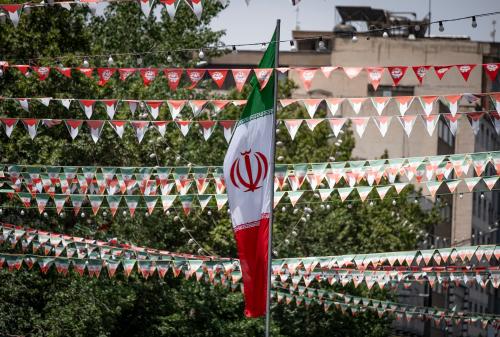President Obama’s decision to renew diplomatic ties with Cuba caused many to wonder what it bodes for the future of the U.S. Naval Station at Guantánamo Bay. In addition to public speculation on about the now-infamous base, Cuban leader Raúl Castro weighed in earlier this year, publicly demanding its return as a condition for normalized relations.
Putting continued speculation to rest, the Obama administration confirmed the United States’ intention to keep the base open indefinitely, drawing an important distinction between the 112-year-old naval station and the terrorist detention facility it has hosted since 2002.
Despite the administration’s persistent effort to close the detention facility, its future will be the subject of debate for months, and likely years, to come. Regardless of the fate of the detention facility, keeping U.S. Naval Station Guantánamo Bay open is the right decision for the United States and the region in the near term.
As the only U.S. forward-operating base in the Caribbean and the gateway to the Gulf of Mexico, Naval Station Guantánamo Bay is uniquely positioned to protect U.S. interests and preserve regional stability. U.S. interests here are dynamic and extend well beyond Cuba. Clearly, Cuba does not pose a significant threat to the United States and hasn’t been a significant driver of U.S. naval strategy since the Cuban Missile Crisis. That said, the Naval Station’s strategic importance is best viewed regionally, as a centerpiece for sustaining robust U.S. maritime presence in the Caribbean and southeast approaches to the United States.›‹
Because the nation currently lacks a viable and cost-effective alternative for forward presence in the region, keeping the base open remains a strategic imperative. The forward staging of U.S. vessels is critical to executing a layered security concept which allows the nation to prevent dangerous or illicit activities far from the homeland.
The State Department, Navy, Coast Guard, and other DHS components rely on this naval station for mass migration events, humanitarian assistance and disaster-relief operations in the Caribbean. It played a pivotal role in regional security and humanitarian operations for the past several decades, including the rescue and interdiction of thousands of migrants during multiple mass-migration incidents in the 1980s and 1990s, facilitating rapid Navy/Coast Guard assistance and stabilization operations in the wake of the devastating 2010 Haiti earthquake.
Naval Station Guantánamo Bay remains the pre-designated location for migrant housing during a mass migration event from the region, and its “in-theater” location allows U.S. maritime assets to quickly offload migrants for processing ashore, then rapidly return to the theater to continue vital drug interdiction and search and rescue operations.
As the only Navy base in the region, the station is a preferred port call over foreign ports because of superior force protection, operational security, avoidance of notice requirements to foreign governments and ease of transfer for personnel and supplies.
Should relations with Cuba continue to thaw, the U.S. presence at Guantánamo Bay could provide a collaborative foundation for limited bi-lateral cooperation, particularly in the maritime domain. Shared and generally non-controversial interests at sea such as search and rescue, environmental protection and counter-narcotics operations may eventually offer an opportunity for basic military-to-military cooperation, building off the U.S. Coast Guard’s years of quiet yet effective cooperation with the Cuban Border Guard on matters of migrant interdiction.
There is a lot of emotion associated with the naval station because of its recent role hosting the detention facility. As the future of both U.S.-Cuba relations and the detention facility become the subject of sharper debate during the run up to the 2016 presidential election, it is important to remember the strategic utility of the naval station itself and not confuse it with the detention facility. While some have called for withdrawing from the base entirely, the near-term decision to keep Naval Station Guantánamo Bay open is the right one.
This opinion originally appeared in the Miami Herald.
The Brookings Institution is committed to quality, independence, and impact.
We are supported by a diverse array of funders. In line with our values and policies, each Brookings publication represents the sole views of its author(s).



Commentary
Op-edKeep the U.S. Naval Station at Gitmo open
March 25, 2015